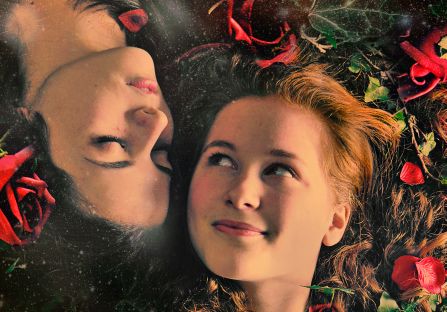Gary Raymond critically reviews The Sleeping Beauties by Roisin McBrinn, Sherman Cymru’s family Christmas show this year describing it as inventive and derivative, fresh and familiar; everything was where it should have been.
 Sherman Cymru’s family Christmas show this year is a bold and ambitious project, not just in the staging, but in ideas. So easily could it have been haphazard, so easily could it have trodden in so many fantastical gardens that the audience would have been left well-twirled, but just dizzy. But with The Sleeping Beauties Roisin McBrinn has created a largely enjoyable and confident fantasy.
Sherman Cymru’s family Christmas show this year is a bold and ambitious project, not just in the staging, but in ideas. So easily could it have been haphazard, so easily could it have trodden in so many fantastical gardens that the audience would have been left well-twirled, but just dizzy. But with The Sleeping Beauties Roisin McBrinn has created a largely enjoyable and confident fantasy.
We have here staples of many a Christmas ‘family adventure’: a quest, an innocent protagonist, a dark evil, broad comedy, moments to whoop at! But with it are some surprising and intelligent turns of events. The Sleeping Beauties does not settle for a proto-medieval landscape, and does not settle simply for ‘borrowing’ ideas from popular and modern myth (from Snow White to Stardust), but it makes modest pushes at the boundaries, and it is all the more entertaining for it (a wise decision of balance from McBrinn, who keeps things fresh without ever being too challenging).
The story has enough in it too to keep the seasoned fantasy fan interested. Dawn and Eve are the two best friends, entwined by fate and witches’ magic, through a thousand years of sleep, bound to fulfill a prophesy and banish evil from their kingdom. They represent night and day, and although this is a slightly underdeveloped motif, it adds a well-worked depth to the story. Gwawr Loader is suitably seraphic as Dawn; Bettrys Jones gleefully spunky and rambunctious as Eve. Gruffudd Glyn has a great deal of fun as the villain of the piece, his transformation either side of the girls’ millennial slumber, from a kind of Grima Wormtongue to Lily Savage plays Ming the Merciless is one of the more delightfully pantomimic turns in the production. Adam Scales is well cast as the Prince who sets Dawn and Eve free from their spell (although I look forward to Scales doing something other than charmingly gangly in the future). Lisa Jen Brown is an extremely arresting presence as the witch (or Fertility Wife, as she is disarmingly listed in the programme); not an easy role, despite the lavish Gothic costume, so weighed down is it with exposition and asides. In fact, it is the complexities of the story, such as they are, that hold this back. The Sleeping Beauties, for all of its bravado and humour, was light on spectacle when it came down to it. The magic was suggested, not given, and most energy was ploughed into nicely ramshackle dance routines that failed to move anything forward. There was a feeling by the end that most buckles had been left decidedly unswashed.
But the carnival roustabout attitude of the production won through in the end. Matthew Bulgo’s comic performance as the King and then a police guard was a superb display; he moved from ludicrous hand gestures and manic comedy to shrugs and sniggers with great ease, and his all-to-brief scene as a futuristic fashion-designer (a tip of the hat to The Hunger Games) alongside the excellent Molly Vevers was the comedy highlight of the evening. And Lucy Rivers’ musical direction riffed along the single theme throughout with an energetic and evocative hand. Moving from medieval fantasy to sci-fi could have been the play’s undoing, but the confident and heartfelt performances, and the solid design work, held everything together convincingly.
There is a very tedious and tired marketing line nowadays (I wholeheartedly blame The Simpsons) that repeats kids’ shows must have something for the adults, too. The blurb for The Sleeping Beauties was no different. I can only think it is cynically designed to attract lazy parents who could not otherwise bear to sit through a show aimed only at their children. Well, I saw no evidence of a show aimed at ‘all ages’ here, and it was all the better for it. Some of the best theatre I have seen in the last few years has been for children, not their parents. Patronise kids at your peril, but don’t forget that patronising adults can lose you an audience, too.
The Sleeping Beauties did not patronise anyone in the theatre, and is clearly made by a company that not only cares about family theatre, but understands it implicitly. It was inventive and derivative, fresh and familiar; everything was where it should have been.


 Enjoyed this article? Support our writers directly by buying them a coffee and clicking this link.
Enjoyed this article? Support our writers directly by buying them a coffee and clicking this link.








